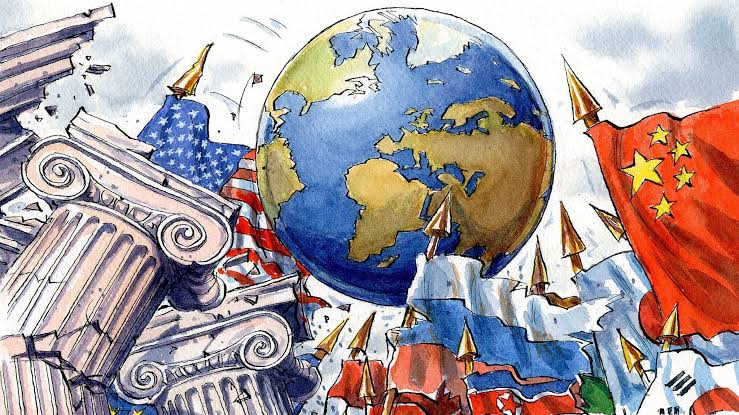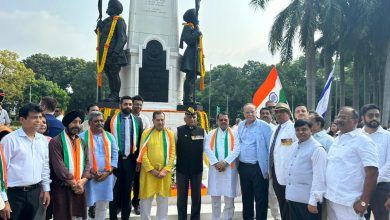Are We Finally On The Verge Of Multipolar World Order ?

Changing International Relations
New Delhi : It is said that the world has entered an era of multi polarization or that international relations have become diversified in recent years. The following can be cited as some of the principal factors contributing to the diversification of today’s international structure: the growth in the national power of Japan and the countries of Western Europe, the rise of China’s international status, the continued Sino-Soviet conflict, the collapse of the colonial system, the growing nationalism and self-assertion of countries in the South, and the increasing inclination to pursue national or ethnic interests among the countries in the East, the West and the South alike. Moreover, the options available to many countries in foreign policy have increased as a result of the fact that the outbreak of war between the East and the West has become steadily more difficult, that despite many years of cold war, direct armed conflict between the East and the West has been avoided, and that in recent years the East and the West have adopted the policy of easing tensions. These circumstances have also tended to promote the trend toward diversification.
Furthermore, international relations have become further complicated by an increase in the relative importance of international economic problems and by the fact that economic problems tend to become political issues with the intensification of interdependence among nations.
The weight of the United States and the Soviet Union and their bilateral relations remains predominant in world politics today. However, in a world where interdependence has increased and the interests of various countries are so thoroughly intertwined, even a great power is limited in its ability to handle various problems on its own. It can be said, therefore, that the need for bilateral and multilateral cooperation and dialogue is a logical consequence of the contemporary international community. The following activities by and among the various countries of the world reflect this situation: moves to coordinate views within groups of countries in the West, the East and the South, namely, the various meetings of OECD, the Rambouillet Summit, consultations among the heads of East European countries, the Conference of Heads of States and Chief Ministers of Non-Aligned Nations, ASEAN and OPEC; East-West dialogues which include the Conference on Security and Cooperation in Europe (CSCE) and the Strategic Arms Limitation Talks (SALT) between the United States and the Soviet Union; dialogues between the North and the South which include the Conference on International Economic Cooperation (CIEC) and the U.N. Conference on Trade and Development (UNCTAD); the existence of various collective security agreements; and various U.N.-sponsored conferences addressing themseves to such issues as raw materials, environment, food, population, and the habitat.
The situation involves the danger of giving rise to tension and friction in international relations if any one group should,through collective action, stubbornly pursue its self-interests in disregard of those of others, or demand an immediate and radical change in the existing state of affairs. For this very reason, all countries must, more than ever, promote cooperation in the spirit of fairness and compromise in the international community.
A new and more complicated network of relations in the international community is emerging as a result of the growing tendency for nations to pursue national interests by going beyond the framework of the groups to which they traditionally belong. Under these circumstances, a more flexible attitude and a broader viewpoint than ever before are needed in external relations to maintain international stability.




